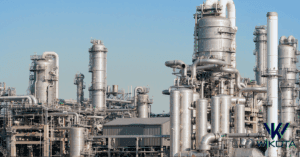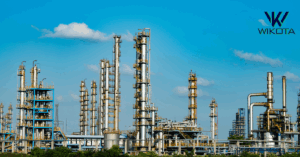Introduction to Fabricated Piping
Fabricated piping systems are vital for industries such as oil and gas, power generation, chemical processing, and water treatment, enabling the safe and efficient transfer of liquids, gases, and materials. Precision in fabricated piping ensures these systems meet stringent safety, performance, and durability standards. This article outlines the critical steps to achieve precision in fabricated piping and highlights the benefits for industrial projects, optimized for compliance with ASME standards and operational excellence.
What Is Fabricated Piping?
Fabricated piping involves custom-designed pipe systems tailored to specific industrial needs. Unlike off-the-shelf pipes, these systems feature complex layouts and specialized components to handle unique pressures, temperatures, and environmental conditions. Precision fabrication ensures reliability, safety, and efficiency, making it essential for high-stakes industries.
Key Steps to Achieving Precision in Fabricated Piping
Precision in fabricated piping demands meticulous attention to detail, advanced techniques, and adherence to industry standards. Below are the essential steps to ensure high-quality outcomes:
- Detailed Design and Planning
Precision begins with comprehensive design and planning. Engineers collaborate with clients to understand operational requirements, including flow rates, pressures, and environmental factors. Using CAD (computer-aided design) models, they create detailed blueprints to optimize piping layouts.
This step includes selecting appropriate materials, specifying pipe sizes, fittings, and components, and ensuring compatibility with existing systems. Thorough planning minimizes costly adjustments and ensures the system meets functional and regulatory requirements.
- Precision Cutting and Machining
Precision cutting and machining are critical for achieving exact dimensions. Advanced tools like CNC (computer numerical control) machines, laser cutters, and waterjet cutters ensure accurate cuts with minimal error. These tools deliver consistent results, essential for proper alignment and fit within the piping system.
Machining also creates custom components like flanges and valve housings, tailored to project specifications. Precise machining ensures seamless integration, reducing the risk of leaks or misalignments.
- Accurate Welding and Jointing
Welding is a pivotal step in fabricated piping, requiring strong, defect-free joints to handle high pressures and hazardous materials. Advanced welding techniques enhance precision and reliability:
- Orbital Welding: Delivers consistent, high-quality welds for high-pressure systems.
- TIG Welding: Provides precise, clean welds for critical applications.
- Robotic Welding: Ensures uniformity and speed for large-scale projects.
Accurate welding and jointing prevent weak points, ensuring compliance with ASME standards and long-term system integrity.
- Precision Bending and Forming
Complex piping layouts often require precise bending and forming to navigate tight spaces or obstacles. Advanced equipment, such as induction benders and hydraulic press brakes, enables accurate shaping without compromising pipe strength.
These techniques ensure tight-radius bends and custom angles meet design specifications, reducing the risk of cracks or deformities that could affect performance.
- Surface Treatment and Coating
Surface treatments and coatings protect fabricated piping from corrosion, wear, and harsh environments. Common coatings include:
- Epoxy: Resists corrosion and chemical exposure.
- Galvanization: Provides a durable zinc layer for outdoor or marine settings.
- Powder Coating: Enhances durability and resistance to wear.
Precise coating application ensures even coverage and strong adhesion, extending the system’s lifespan and reducing maintenance needs.
- Rigorous Quality Control and Testing
Quality control is integral to precision fabrication. Non-destructive testing (NDT), hydrostatic testing, and pressure testing verify system integrity:
- Ultrasonic Testing (UT): Detects internal flaws like cracks or voids.
- Radiographic Testing (RT): Identifies weld imperfections using X-rays.
- Hydrostatic Testing: Pressurizes the system to confirm it can handle operational pressures.
Ongoing quality checks catch issues early, ensuring compliance with industry standards and client specifications.
Benefits of Precision in Fabricated Piping
Precision fabrication delivers significant advantages, enhancing safety, efficiency, and cost-effectiveness:
- Enhanced Safety and Reliability
Precise fabrication minimizes risks of leaks, ruptures, or failures, ensuring safe operation under high pressures or with hazardous materials. High-quality welds and rigorous testing align with ASME standards, protecting workers and the environment.
- Reduced Maintenance and Downtime
Precision-crafted piping systems are more durable, requiring less maintenance and reducing unexpected downtime. Robust materials and coatings enhance resistance to wear, ensuring operational continuity.
- Optimized Efficiency and Flow Rates
Accurate pipe layouts and smooth internal surfaces reduce friction and turbulence, improving flow rates and energy efficiency. This is critical for industries where fluid dynamics impact productivity.
- Cost Savings
Precision fabrication reduces rework, maintenance, and downtime, leading to significant cost savings. High-quality systems also minimize the need for costly repairs or replacements.
- Compliance with Industry Standards
Precision ensures compliance with regulations in industries like oil and gas or pharmaceuticals, avoiding fines and operational disruptions. Adherence to ASME standards guarantees safety and reliability.
- Extended System Lifespan
Durable materials, precise welds, and protective coatings enhance the longevity of fabricated piping, enabling it to withstand harsh conditions and deliver long-term performance.
Conclusion
Precision in fabricated piping is critical for achieving safe, efficient, and durable systems in industries like oil and gas, power generation, and chemical processing. From detailed design to rigorous testing, each step ensures compliance with ASME standards and meets operational demands.
The benefits of precision—enhanced safety, reduced costs, improved efficiency, and extended lifespan—make it a necessity for industrial success. Partnering with an experienced fabricator like Wikota Fab Solutions ensures high-quality piping systems that drive productivity and reliability. Invest in precision-fabricated piping to secure a robust, long-lasting solution for your industrial needs.
Ready to power your next project? Explore our Fabrication Services and let’s build something strong together.
Contact us today to learn how Wikota’s Fab Shop can help with your fabrication needs.
Serving North America – We ship completed projects anywhere in the US.




